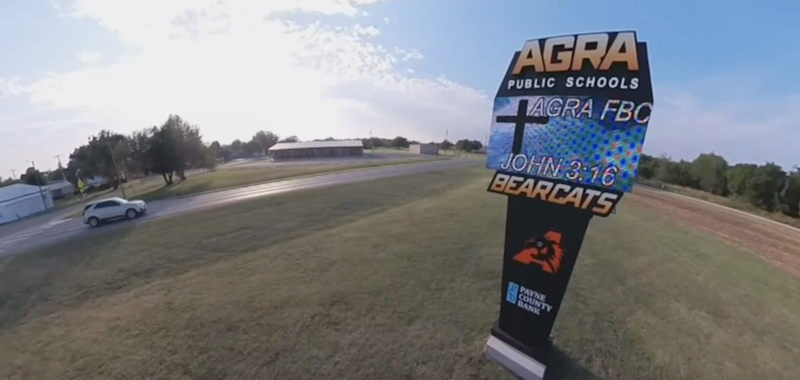In an election year, it’s easy to feel as though the only votes that matter are the ones we cast for president. But the fact of the matter is that down-ballot candidates often have more impact on our daily lives than anyone we send to Washington D.C. Take, for instance Oklahoma state superintendent Ryan Walters, a Trump-allied Republican who took office in 2023 and has called for the dissolution of the Department of Education. This past June, Walters issued a memo to superintendents across the state to let them know that “effective immediately, all Oklahoma schools are required to incorporate the Bible, which includes the Ten Commandments, as an instructional support into the curriculum across specified grade levels.”
The directive, he clarified, is in accordance with educational standards approved in 2019, predating his tenure. “Adherence to this mandate is compulsory,” he said in conclusion before continuing. “Immediate and strict compliance is expected.”
While many of Oklahoma’s largest school districts have announced they would be making no changes to their curriculum, some openly defying the directive, one of its smaller districts — Agra Public Schools, which educates approximately 325 students in three schools — has vocally embraced the idea of incorporating the Bible into its curriculum.
In an email, Agra Superintendent Jeff Kelly replied to Walters’ memo writing “Thank you so very much!! We desperately need the Bible back in our schools and this directive will give us the necessary protection/cover. Looking forward to implementing this important program!” Kelly, News 9 reports, is also a Baptist pastor in the small town.
The guidelines apply to students from grades 5 to 12 and apply the Bible to broader curricula including narrative and literary elements and historical contexts of Bible stories as well as how the Bible has influenced music and art.
In Agra, opinion seems to be largely supportive of bringing the Bible into classrooms, but not univocally so. A quick peek at the Facebook group “What’s Happening In Agra?” shows lively debate among residents on the subject.
“Why is it a problem? It’s a part of history,” one resident responded.
“So is slavery and we don’t teach that,” replied another.
And yet, as one commenter notes (confirmed by reporting from News 9), when a public discussion on the topic of Bibles in classrooms was held, only teachers and administrators attended.
While the guidelines state that the Bible “is not to be used for religious purposes such as preaching, proselytizing or indoctrination” and that “maintaining neutrality and objectivity is crucial,” mandating religious texts in classrooms has not gone over well from a legal standpoint, historically speaking. In 1962, Engel v. Vitale ruled that schools cannot hold prayers in public schools, even if participation is not required and the prayer is not tied to a particular religion. Notably, it did not forbid student-initiated prayer in schools, which has always been permitted and remains a First Amendment right.
In 1980, the Supreme Court ruled in Stone v. Graham that the state of Kentucky could not require a display of the 10 Commandments in classrooms. The state tried and failed again in 2005 under McCreary County v. ACLU.
But with six of the current Supreme Court Justices appointed by conservative presidents — George H.W. Bush, George W. Bush, and Donald Trump — lawmakers and civil servants on the right like Walters appear to be emboldened to enact more conservative agendas. In addition to Oklahoma’s Biblical initiative, Louisiana, for example, enacted a law earlier this year requiring a display of the 10 Commandments in all classrooms, in apparent defiance of previous federal rulings.
And so it bears repeating, wherever you fall on the political spectrum: the president may be the most powerful person in government, but it doesn’t take the most powerful person to make a difference in our communities.

